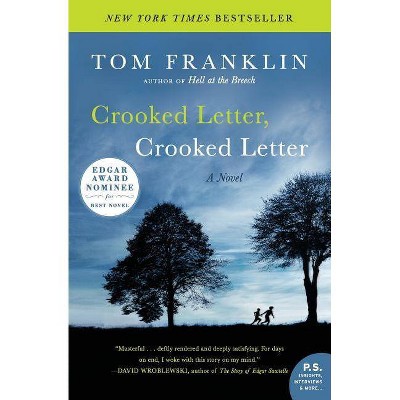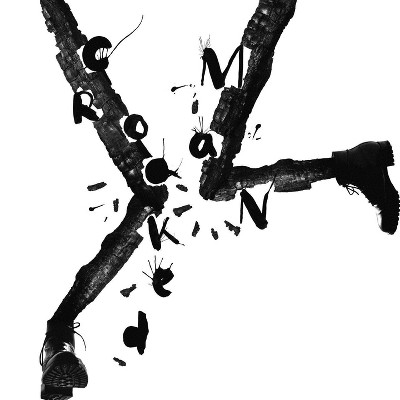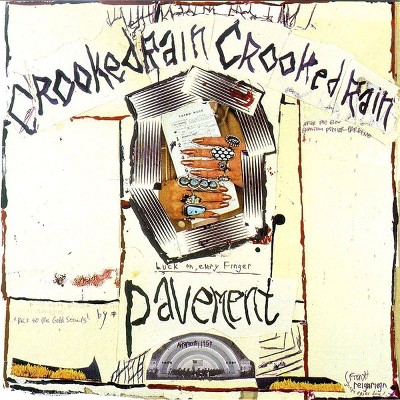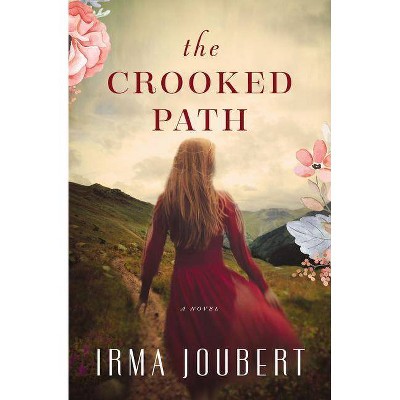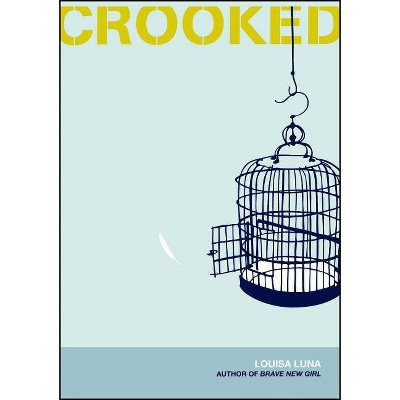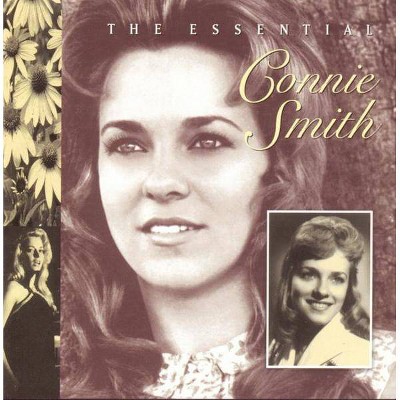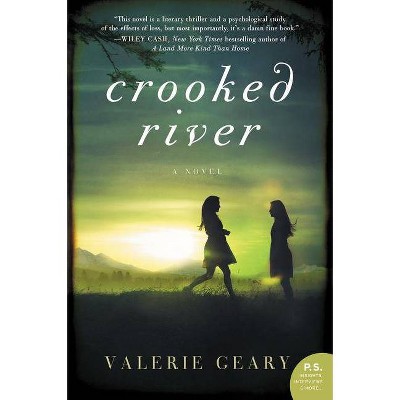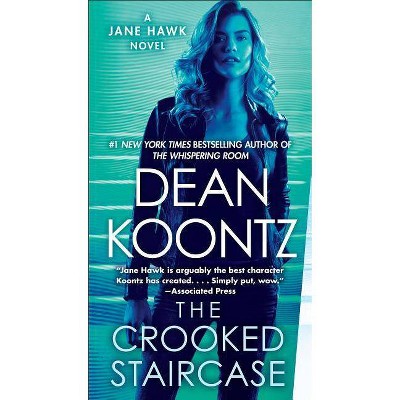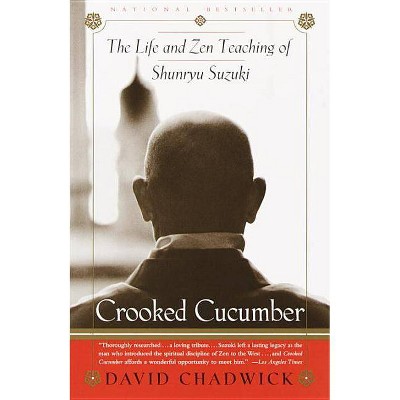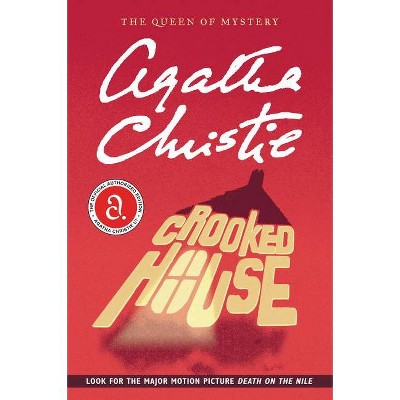Crooked Letter I - by Connie D Griffin (Paperback)
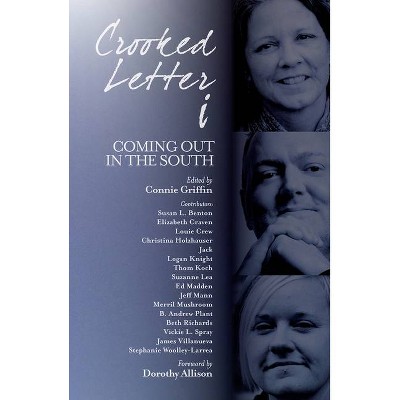
Similar Products
Products of same category from the store
AllProduct info
<p/><br></br><p><b> Book Synopsis </b></p></br></br><em>Crooked Letter i</em> offers a collection of first-person nonfiction narratives that reflect the distinct 'coming out' experiences of a complex cross-section of gay, lesbian, and transgendered Southerners from all walks of life and at different stages in their lives. There is the Appalachian widower who, following the death of his wife, decides it's time to tell his church community. There is the young man who left his hometown as a girl, returning hesitant but hopeful for his grandmother's love. There is the adolescent girl who refuses to surrender her soul to Jesus because she is not yet certain of her own beliefs. There is the well-mannered Southern gentleman who hopes his blueberries and biscuits will help ease the awkwardness of coming out to his elderly neighbor. There are the ones who survived the frequent bar raids, arrests, and beatings. But, there is also the first kiss, and the first love. The experiences represented here pivot around a central theme--finally finding language to understand one's identity, and then discovering we were never the only ones. Revealing a vibrant cross-section of Southerners, the writers of these narratives have in common the experience of being Southern and different, but determined against all odds.<p/><br></br><p><b> Review Quotes </b></p></br></br><br><em>Crooked Letter i</em> affirms everything that is true about the experience of coming out for Southern queers. That is, coming out is an experience that is multiple, thrilling, dangerous, and absolutely life-affirming. And 'the South' is multiple, thrilling, dangerous, and absolutely life-affirming as well, especially for those of us who call it home. Queer Southern folk of nearly every ilk will hear the hymnal echoes of their own experience in this wonderful collection of voices. I heard my own in nearly every essay. -- <b>Teresa Stores</b>, associate professor of English at the University of Hartford, author of <em>Getting to the Point</em>, <em>SideTracks</em>, and <em>Backslide</em><br><br><em>Crooked Letter i</em> grabbed me right from the start and held me in its grip all the way through. The stories are deeply personal, so much so that I felt grateful for being entrusted with perhaps the most sensitive and vulnerable parts of its contributors. Regardless of sexual orientation, readers will learn more about being LGBT in the American South while fully relating to the emotions expressed, for its life stories reflect the human condition in its entirety. It is a remarkable book. -- <b>Laurel-Ann Dooley</b>, author of <em>Wicked Atlanta</em> and <em>Best Friend Thief</em><br><br><em>Crooked Letter i</em> proves that no matter how far gay rights have advanced, the coming-out story is that extra step in the coming-of-age journey that all LGBTQI must take. The collection also proves that Southerners and storytelling go together like Gertrude Stein and Alice B. Toklas. Find a front porch and a glass of iced tea and sit a spell with the stories in <em>Crooked Letter i</em>. They will surprise, amuse, move, and devastate. -- <b>Jamie Brickhouse</b>, author of <em>Dangerous When Wet: A Memoir</em><br><br><em>Crooked Letter i</em> will have you angry at the way things used to be in the South, angry about the strict religious mores and the lack of compassion for LGBT people, and angry that family and strangers would shun and disown their own. But it will also fill you with hope and joy and impart a true sense of the American South, with its unique culture, land, and heritage, and the possibility that our gay, lesbian, bisexual, and transgender brothers and sisters are changing the region for the better as they remake their homes and their places within them. -- <b><em>Out in Jersey</em></b><br><br><em>Crooked Letter i: Out in the South</em> is not a loud book. It doesn't rant or rave. It makes no arguments, proffers no manifestos. Instead, the fifteen diverse voices represented here achieve something much more astonishing: they sing together; they harmonize . . . Its authors reach beyond mere self-acceptance toward genuine pride in who they are. And its lucky readers are challenged to reach as well--beyond tolerance, beyond empathy, beyond even self-recognition--toward a deeper understanding of gender, sexuality, family, religion, and place. In other words, a deeper understanding of what makes us human. -- <b>Julie Marie Wade</b>, author of <em>Wishbone: A Memoir in Fractures</em> and <em>When I Was Straight: Poems</em><br><br>"I was always aware there were boundaries. I just didn't know quite where they were" sums up the experience of growing up gay in the South as described in <em>Crooked Letter i</em>. These beautiful stories are poignant and sad, yet life-affirming, and anyone who came out as a young Southerner will closely identify with . . . Most telling are the struggles to reconcile the Southern incongruencies--a loving God who condemns His children to hell for loving another person--and a feeling that the only place we can call home will never completely be our home. -- <b>Rich Merritt</b>, author, <em>Secrets of a Gay Marine Porn Star</em><br><br>An enlightening collection of first-person narratives. -- <b>Joan Broerman</b>, <em>Book Log</em><br><br>From the sorority houses of Alabama to Florida beaches, from witch hunts to warm embraces, the accounts of these LGBT Southerners provide readers with countless examples of courage and confrontation, with some comic touches along the way. Memorable stories of awakenings blend with powerful images of homecomings: when she returns as a he, when a widower comes out to discover his wife was gay as well, when individuals find themselves both at home and in exile. These autobiographical voices within the <em>Cooked Letter i</em> provide indelible insight for understanding identity, gender, and sexuality within the American South. -- <b>Catherine Clinton</b>, Denman Professor of American History, University of Texas San Antonio, and author of <em>Mrs. Lincoln: A Life</em><br><br>I once attended a lecture by Toni Morrison in which she posited that all literature concerns the stranger--being the stranger, fearing the stranger, accepting the stranger. We who are Southern and LGBT have experienced all of that in our lives which are so often lived as strangers in a place we abidingly call home ... In this remarkable collection of essays, these writers--no longer strangers to themselves--not only claim their rightful place in the landscape of letters but also the geography of juleps and cheese grits and our fundamentalist families. -- <b>Kevin Sessums</b>, author of <em>Mississippi Sissy</em><br><br>Most histories and accounts of growing up LGBTQ focus on cities: New York, San Francisco, Boston, Los Angeles. But as the old slogan has it, 'we are everywhere, ' including in the rural and urban South. The accounts in <em>Crooked Letter i</em> of courage, humor, misery, love provide living demonstrations of the other half of that slogan: 'and we shall be free.' -- <b>Amy Hoffman</b>, author of <em>An Army of Ex-Lovers</em><br><br>Moving and engrossing . . . The mosaic of voices assembled for this stimulating collection offer insight, hope, and affirmation while illuminating the uniquely Southern--and the universal--aspects of the coming-out process. -- <b>Bennett Singer</b>, editor of <em>Growing Up Gay/Growing Up Lesbian</em> and co-director of <em>Brother Outsider: The Life of Bayard Rustin</em><br><br>Much needed, deeply personal. This book is important because there aren't enough like it. For decades Southerness and queerness have been viewed as insoluble. <em>Crooked Letter i</em> attempts to coalesce these into a solid identity that people can own without trying to negotiate part of themselves in order to appease another. -- <b><em>New Orleans Review</em></b><br><br>The testimonials in this meticulously curated volume are all candid and memorable, resulting in the perfect union of a timely subject with a formidable array of writers who represent an admirable range of diversity. From the first essay onward, the regional quickly becomes universal and what was once private, and sometimes painful, becomes, in the telling, something to share and to celebrate. A wonderful addition to the literature of self-discovery and emancipation. -- <b>Madeleine Blais</b>, Pulitzer Prize-winning journalist and author of <em>In These Girls, Hope is a Muscle</em><br><br>This collection of deeply moving, entertaining, and enlightening essays does great, noble, and necessary work. It communicates the vulnerability, complexity, and beauty of 'being who you are' in an area where 'who you are' can be labeled 'alien, ' primarily because your loves, fears, dreams, and commitments--the emotional and cognitive realities of all human lives--are not perceived, much less understood. -- <b><em>Charlotte Viewpoint</em></b><br><br>Until I read <em>Crooked Letter i</em>, I had no idea that as tragic and melancholy as Faulkner showed the South to be, even he failed to capture the fresh and vivid suffering of gay men and women growing up there. You will find in <em>Crooked Letter i</em> many heartbreaking accounts of men and women who came into this world with spirits no less pure than any other innocent child, but who--growing up in the South--suffered in an atmosphere of rejection and condemnation as poisonous as any air you will ever find in China. -- <b><em>Rainbow Book Reviews</em></b><br>
Price History
Price Archive shows prices from various stores, lets you see history and find the cheapest. There is no actual sale on the website. For all support, inquiry and suggestion messagescommunication@pricearchive.us
